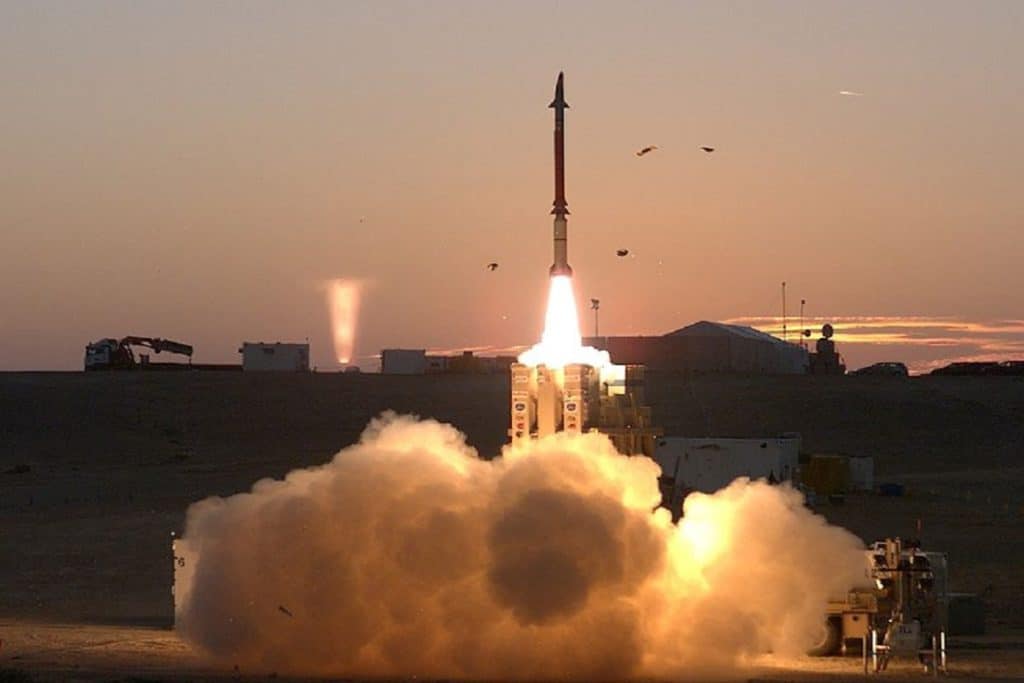By Denis Korkodinov
As a result of American pressure, Iran has become a potential platform for nuclear war. The enrichment process announced by Tehran, with the possibility of its use for military purposes may increase the risk of the use of nuclear weapons by neighboring states. At the moment, Israel, apparently, is on the verge of the possibility of a nuclear strike.
However, for now this is only a theory. International pressure on the Ayatollah regime is unlikely to force Iran to abandon its nuclear ambitions. Apparently, Tehran may become a permanent member of the Nuclear Club in the near future. This forces the international community to reconsider the policy of nuclear deterrence, in which more and more attention is paid to increasing the range of situations where the use of nuclear weapons will be considered an adequate response measure.
In any case, Israel and a number of other states have already revised their military doctrines and turned out to be very close to delivering a nuclear attack on the targets of a potential enemy.
It is worth noting that, according to the new version of the military doctrine, Tel Aviv considers itself entitled to respond with a nuclear attack if a potential enemy strikes the first shot on Israel’s territory, using either nuclear weapons or other weapons of mass destruction (whether chemical or biological ). At the same time, Israel can launch a nuclear strike, assessing the capabilities of the enemy to continue military operations.
In other words, only being confident that the use of nuclear weapons can inflict maximum damage to a potential aggressor, as a result of which he will not be able to respond in any way, the Israeli leadership can take such an ambitious step. In the case of Iran, this means that if Israel decides to launch a nuclear strike on Iranian territory, this strike should be unprecedentedly powerful.
Among other things, Israel can use nuclear weapons if its intelligence services determines that a particular state in the Middle East is conducting an unauthorized development of non-conventional weapons. At the same time, a nuclear strike can be recognized as unjustified if the enemy demonstrates aggression or has the intention to display it in the “traditional way”, that is, using conventional firearms on a scale that does not threaten the territorial integrity of Israel and the mass extermination of its population.
Equally important may be the previous experience of the enemy conducting military operations. That is, if it turns out that the aggression of a potential enemy is expressed practically in the forms that it has repeatedly used in the past, then a nuclear strike on him can be considered disproportionate with one exception. For example, Tel Aviv will consider itself entitled to use, among other things, nuclear weapons against Iran if the Israeli leadership comes to the conclusion that all the usual methods of influencing a conditional enemy, who does not want to admit defeat, have been exhausted. However, there are several reservations.
Thus, the escalation of the conflict between Israel and any state or group of states is unlikely to involve a nuclear strike if this measure is not approved by the Knesset. And if the public comment process recognizes that there are other ways to neutralize the enemy than using nuclear weapons, these methods should be applied as a matter of priority.
However, the Israeli Prime Minister can still take almost solely the decision to launch a nuclear strike, when any delay can pose a direct threat to the State of Israel and its people. Nevertheless, following the results of a nuclear battle, the head of the Israeli government still has to prove to society that a nuclear strike was the only possible option to eliminate the threat.
From the above, it can be concluded that Israel can use a nuclear weapon solely as a response to an attack. However, this does not preclude him from being the first to deliver a preemptive strike, even if it contradicts international norms restricting the use of non-conventional weapons. In particular, Tel Aviv can demonstrate its nuclear superiority if: 1) a conditional enemy has acquired or engaged in the production of weapons of mass destruction, the use of which can destroy the State of Israel; 2) a conditional opponent publicly threatens to use existing weapons against Israel; 3) the conditional opponent began a “reverse report” before the moment of use or preparation for the use of weapons.
Given this, it is worth noting that, in the opinion of the Israeli leadership, Iran is ready after July 2019 to begin enriching uranium, which could be used for military purposes.
Following the logic of Tel Aviv, Tehran officially announced its intention to start producing nuclear weapons. In addition, the Ayatollah regime set a deadline for considering its conditions for the extension of a nuclear transaction – 60 days. For Israel, the Iranian ultimatum marks the beginning of a “reverse report”. And in the end, Iranian President Hassan Rouhani repeatedly stated in his appeals to the nation that he was ready to use force against any targets threatening Tehran. In this regard, Tel Aviv can accept the submitted statement of the Iranian leader on the clock bill, which means that, formally, Israel, guided by its military doctrine, can use nuclear weapons against Iran.
(The opinions expressed in this article are solely those of the author and do not necessarily reflect the views of World Geostrategic Insights)







